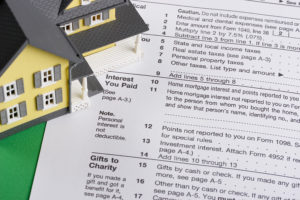 I had a client ask whether someone who inherits a home qualifies for the $250,000/$500,000 home sale tax exclusion. The short answer is no. But the good news is you do not need to qualify. When you inherit a home, the basis value of the home “steps up” to the appraised value at the time of the home owner’s death. For example, if Harriet bought her home for $150,000 and at the time of her death it was appraised at $800,000, the basis value for tax purposes would be the $800,000. It is unlikely you would sell the house for much more than the appraised value, so there would not be capital gains to worry about.
I had a client ask whether someone who inherits a home qualifies for the $250,000/$500,000 home sale tax exclusion. The short answer is no. But the good news is you do not need to qualify. When you inherit a home, the basis value of the home “steps up” to the appraised value at the time of the home owner’s death. For example, if Harriet bought her home for $150,000 and at the time of her death it was appraised at $800,000, the basis value for tax purposes would be the $800,000. It is unlikely you would sell the house for much more than the appraised value, so there would not be capital gains to worry about.
The Home Sale Tax Exclusion
For those of you who are not aware, the tax law provides homeowners with a tax exclusion when they sell their property. Up to $250,000 of any gain from such a sale received by a single homeowner is tax free. For married homeowners filing jointly, up to $500,000 of gain is excluded from income. To qualify for the exclusion, the home must be your primary residence which is defined as having been used as a main home for two years out of the prior five years before the sale.
The Stepped Up Basis Rule
The basis of a home you buy or is its cost, plus any improvements you make while you own it.
When you inherit property after the owner dies you automatically receive a “stepped-up basis.” This means that the home’s cost for tax purposes is not what the prior owner paid for it. Instead, its basis is the fair market value at the date of their death. This is determined by getting an appraisal of the property.
If you sell an inherited home for less than its stepped-up basis, this is a capital loss that can be deducted. Unless you sell to a family member; we’ll cover that in another post. If you do sell at a loss, you can only claim $3,000 of the losses against your ordinary income per year. Any excess must be carried over to future years to be deducted.

No Comments